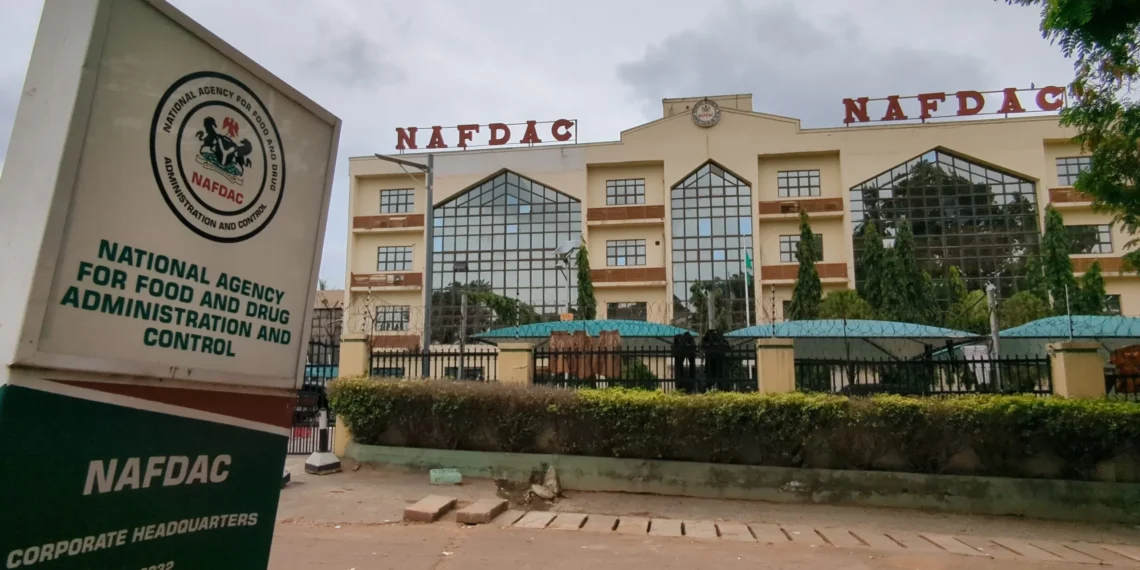The National Agency for Food and Drug Administration and Control (NAFDAC) has intensified its crackdown on counterfeit and substandard medicines with the launch of three major health protection initiatives; the NAFDAC Greenbook, Pharmaceutical Products Traceability Regulations, and Pediatric Policy at a two-day sensitization and awareness workshop for stakeholders in the North-Central Zone.
The workshop, which kicked off on Wednesday, November 12, 2025, at Barcelona Hotel, Wuse II, Abuja, drew participants from across the region, including health professionals, pharmacists, and regulatory stakeholders.
Speaking at the opening session, the Director General of NAFDAC, Prof. Mojisola Adeyeye, described fake and substandard medicines as “one of the gravest threats to human life and dignity,” lamenting that unscrupulous actors continue to endanger lives in pursuit of profit.
“Over the years, Nigeria like many other low- and middle-income countries has faced a persistent challenge: the menace of substandard and falsified medical products, commonly referred to as counterfeit or fake medicines,” Adeyeye said. “These products are introduced by those who prioritize profit over public health. This is unacceptable.”
Read Also:
- FG grants NAFDAC approval to recruit more staff
- December deadline on ban of sachet drinks remains sacrosanct, declares NAFDAC
- NAFDAC shuts down Chinese Supermarkets in Abuja over banned products worth N170m
Prof. Adeyeye highlighted that the agency has deployed multiple strategies over the years to combat counterfeit products including consumer safety publications, the “Shine Your Eyes” campaign on NTA, technologies like MAS, Truscan, and Minilab, as well as weekly health programs on television tagged “NAFDAC & Your Health.”
She noted that despite these measures, counterfeiters have grown more sophisticated, forcing the agency to leverage modern technology and regulatory innovation to stay ahead.
The DG explained that the three initiatives launched at the workshop mark a “new era in pharmaceutical transparency, consumer empowerment, and child health protection.”
“The NAFDAC Greenbook: An online verification tool that allows consumers and healthcare professionals to confirm the registration status and authenticity of medical products. By entering a product’s name, brand, or registration number, users can easily verify whether it is approved by NAFDAC.
“This is about putting the power of verification in the hands of the public,” Adeyeye said. “Every Nigerian deserves to know that the medicine they use is safe and genuine.”
Pharmaceutical Products Traceability Regulations, 2024: This regulation establishes a legal framework for tracking medicines across the supply chain using unique identifiers, making Nigeria the first in Africa and the second in the world to deploy such technology.
According to Adeyeye, the system proved its worth during the COVID-19 vaccine rollout, when it enabled the rapid identification and recall of defective batches within 24 hours.
The phased implementation of the system began with public health commodities, including antimalarial (ATM) and narcotic products, and is now expanding to Maternal, Newborn, and Child Health (MNCH) commodities.
“The NAFDAC Pediatric Regulation, 2024:
This new regulation focuses on ensuring that all medicines designed for children meet the highest standards of quality, safety, and efficacy.
“Children are not small adults,” the DG emphasized. “They require specialized formulations that are safe, effective, and tailored to their developmental needs.”
Prof. Adeyeye concluded her address by urging all stakeholders from health professionals to pharmaceutical manufacturers and distributors to actively support NAFDAC’s initiatives.
“Combating substandard and falsified medical products is a collective responsibility,” she said. “Together, we can ensure that every medicine in Nigeria is safe, effective, and traceable, thereby safeguarding the health of our people.”
The North-Central sensitization workshop forms part of NAFDAC’s nationwide effort to promote public awareness and institutional compliance with its latest health protection policies, ahead of their full-scale implementation in 2026.






